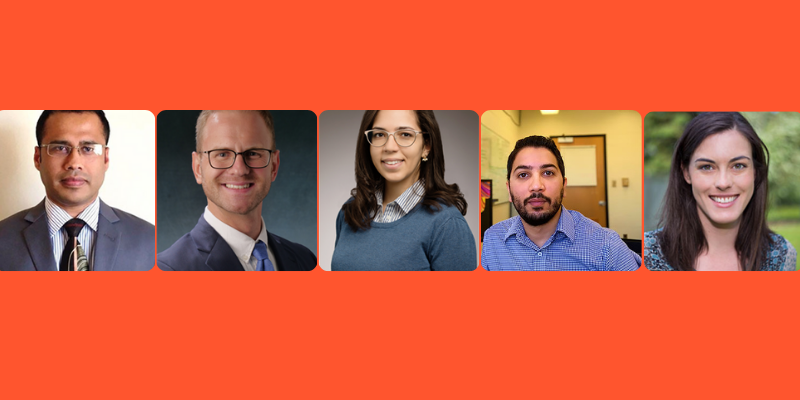New faculty expand ACES capacity in food and agricultural systems for global health

In an effort to dramatically strengthen and expand its capacity to improve global human and environmental health via the food system, the College of Agricultural, Consumer and Environmental Sciences (ACES) has hired a cluster of new faculty who bring strengths in these areas.
The new faculty hired into these positions will contribute to college-wide efforts in food security and global health and participate in related campus priorities, including the Nutrition and Food Security theme of the campus strategic plan, the Interdisciplinary Health Sciences Institute, Carl R. Woese Institute for Genomic Biology, and Carle-Illinois College of Medicine, among others.
“We are truly fortunate to be able to bring in so many excellent new faculty members at this time. The cohort hired under the food and agricultural systems for global health initiative includes experts from the full breadth of fields in our college with some important thematic commonalities related to global food security and global health. The combination of disciplinary excellence and societal relevance they bring will expand the college’s capacities in exciting ways that blend well with initiatives in the Office of International Programs,” says Alex Winter-Nelson, associate dean for international programs.
The targeted strategic areas and new faculty hires include:
Sustainable Bioprocessing Systems and Quality Assessment: Mohammed Kamruzzaman has joined the Department of Agricultural and Biological Engineering. He works on novel and innovative process routes for rapid and real-time characterization and quality assessment/control of bioproducts/bioprocesses to improve food security, quality, safety, and nutrition, while simultaneously accounting for environmental and socio-economic impacts.
Economics of Agricultural Trade and Industrial Organization: William Ridley has joined the Department of Agricultural and Consumer Economics. He specializes in international trade and policy. He is currently analyzing the impact of COVID-19 on international trade in food and agricultural products.
Animal Bionomics: Isabella Condotta has joined the Department of Animal Sciences. Her work reduces animal stress, improves animal well-being and environmental sustainability, and helps farmers make better and more efficient management decisions by developing precision management of animals systems.
Agronomy and Data Analytics: Hamze Dokoohaki has joined the Department of Crop Sciences. The long-term vision for his lab is to synthesize, analyze and create new value from the rich data streams generated by all phases of agricultural production. He will work towards developing novel data-driven approaches at the interface of computer science, statistics and crop science with the goal of improving and protecting our food system.
Risk and Resilience among Vulnerable Families, Adults, and Youth: Merin Oleschuk has joined the Department of Human Development and Family Studies. Her research is in the sociology of food and examines how social inequalities shape household food labor and consumption to impact health and wellbeing.
Food and Nutrition Security: Katerina Stylianou will join the Department of Food Science and Human Nutrition later this year. Her research focuses on human health impact assessment of food items and diets within a life cycle assessment.
In addition to this cluster of hires around the specific themes of global human and environmental health, ACES had added more than 20 additional faculty within the past year who also bring diverse portfolios to ACES, including many who are already engaged internationally. We will be profiling additional new ACES faculty in future articles.